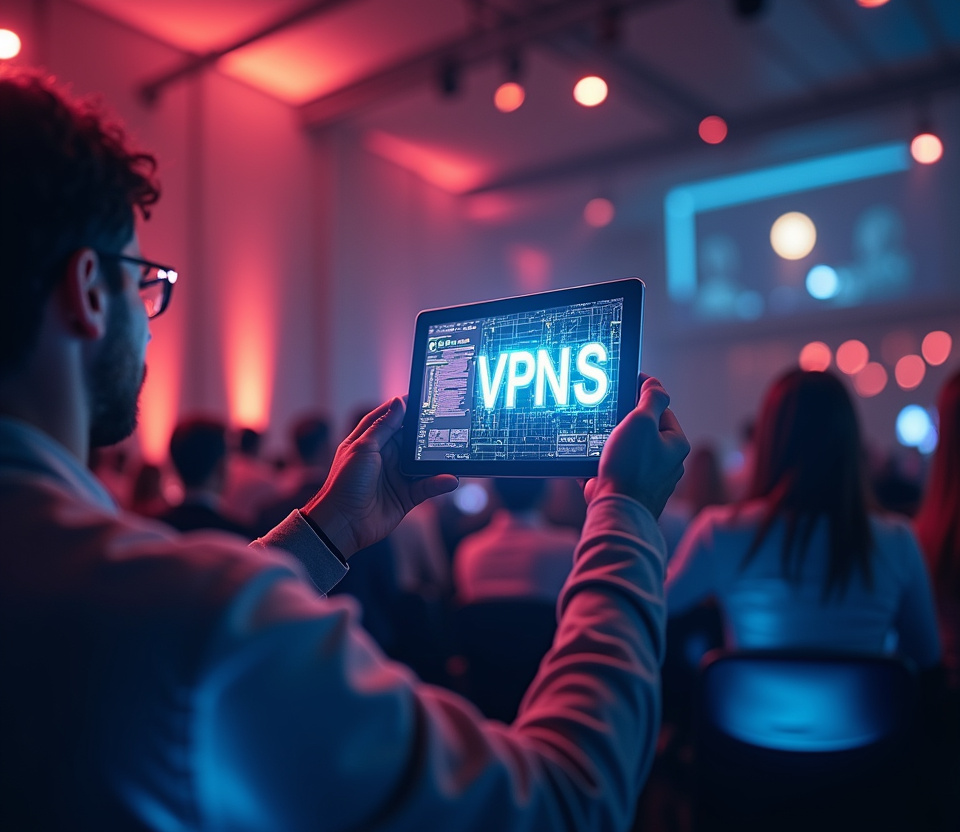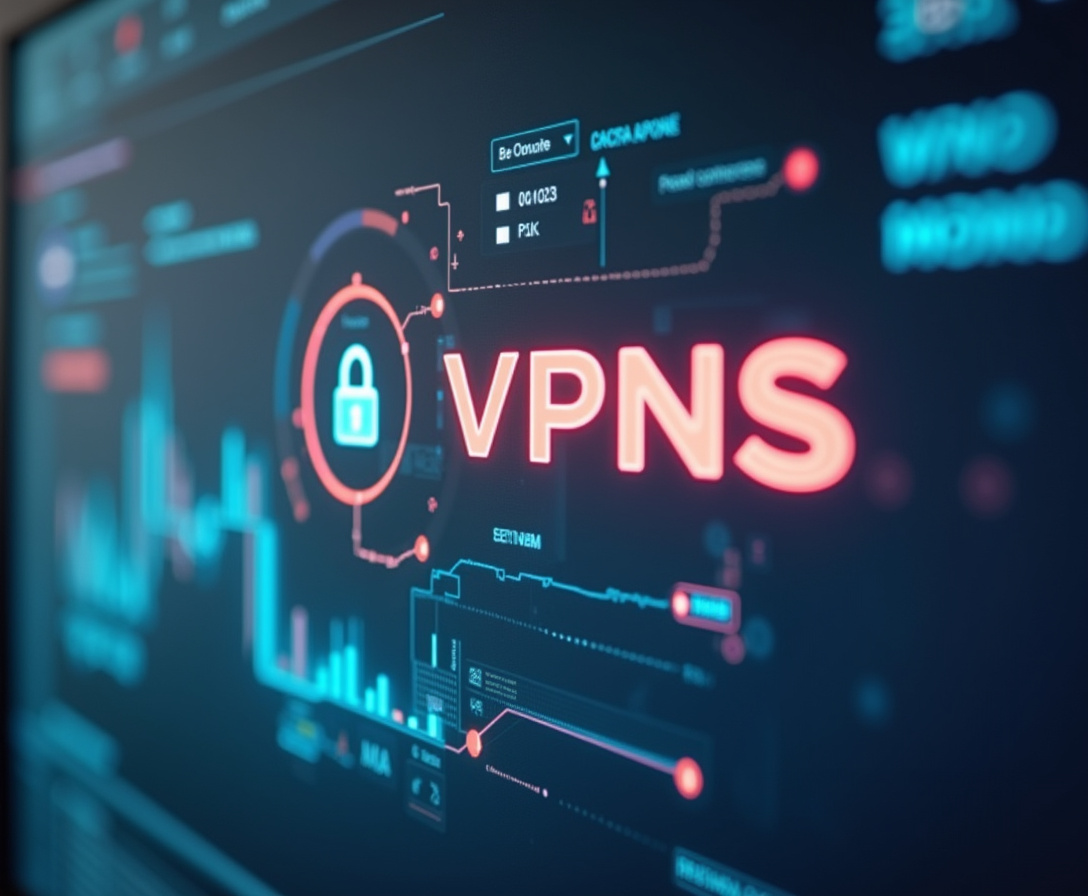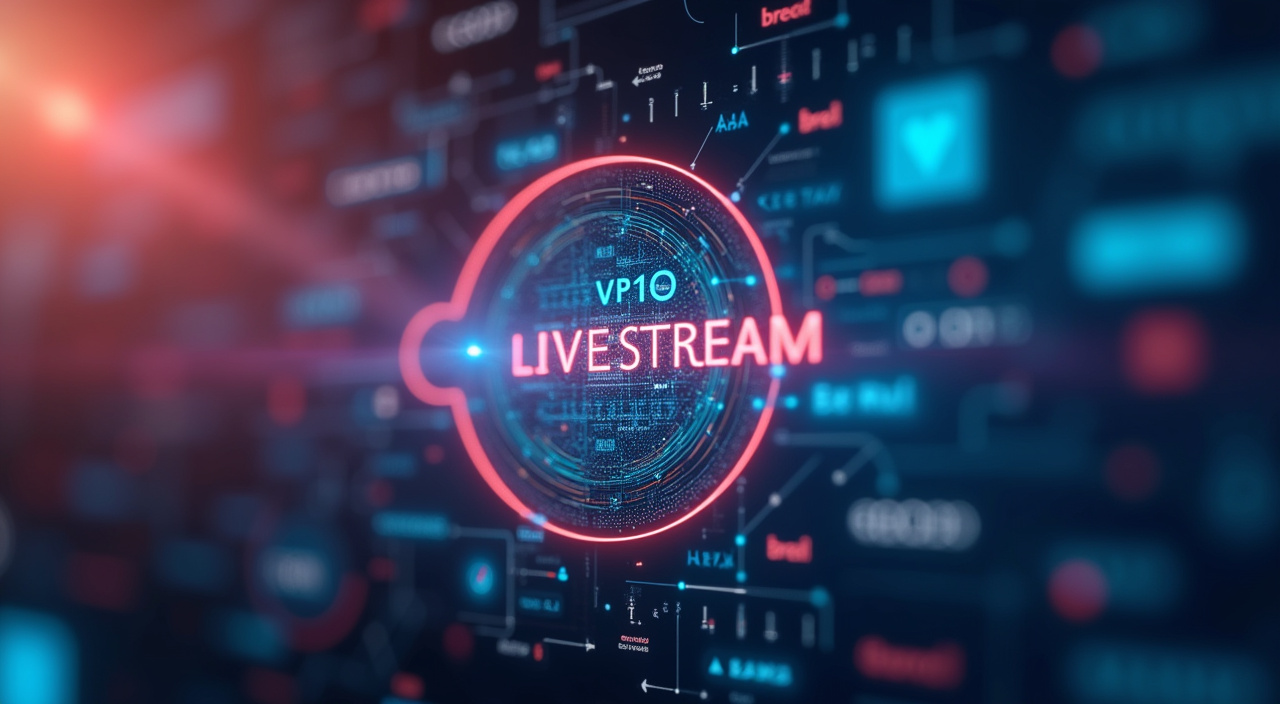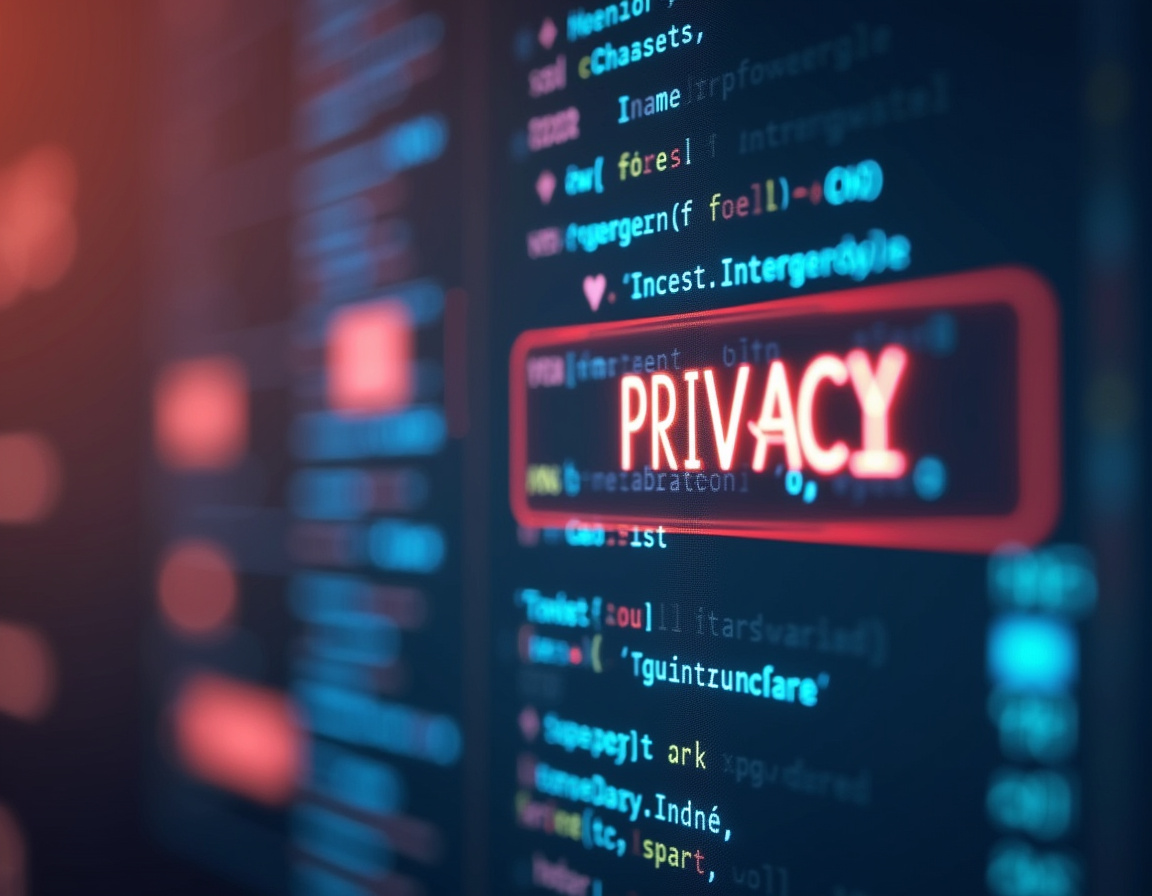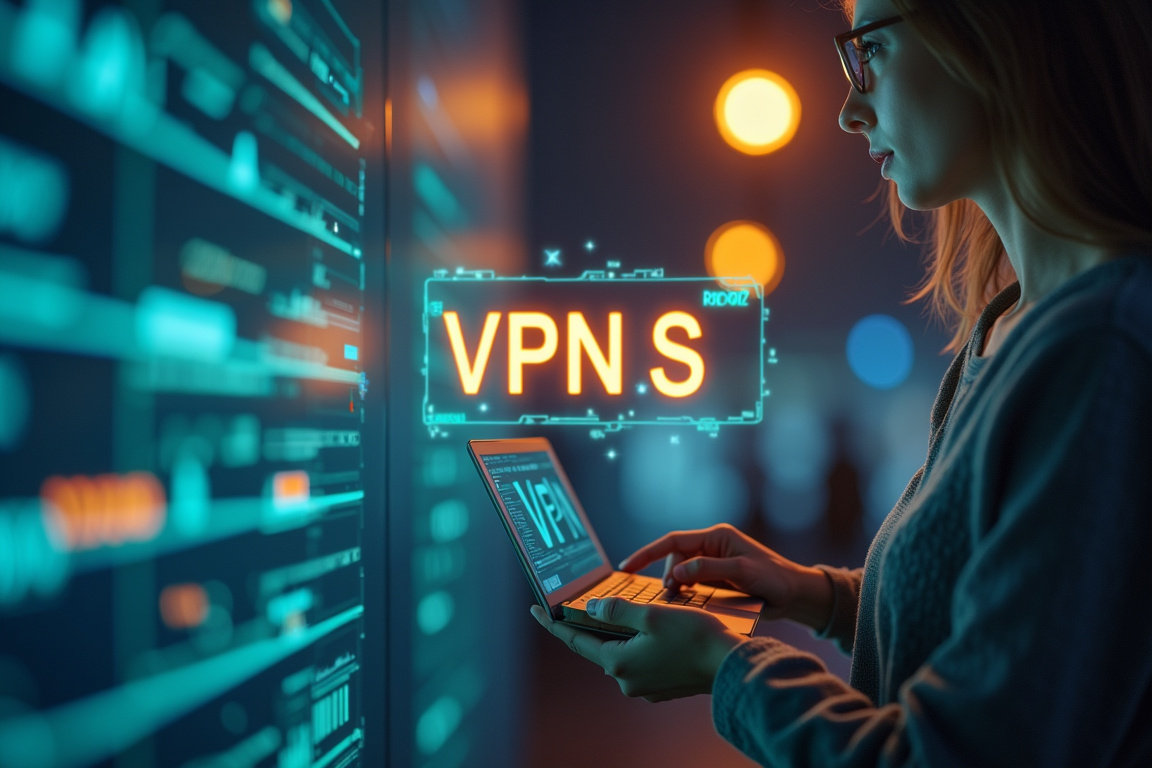VPNs for Cybersecurity Events: Protecting Attendee Information
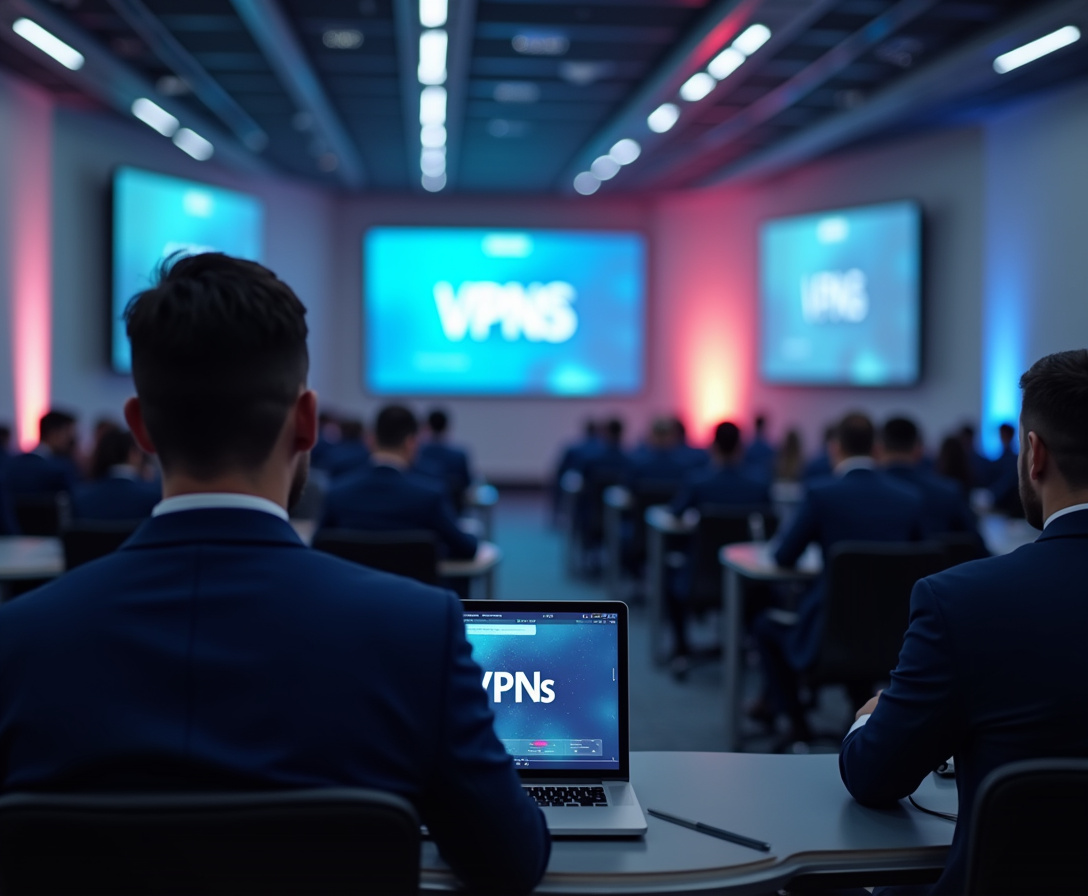
Table of Contents
VPNs for Event Streaming: Securing Your Live Content Transmission
In today's hyper-connected world, cybersecurity events have become increasingly vital platforms for knowledge sharing, networking, and collaboration among industry professionals. These events often involve the exchange of sensitive attendee information, making them prime targets for cyberattacks. Securing attendee data is paramount to maintaining trust, ensuring privacy, and upholding the integrity of the event.
Virtual Private Networks (VPNs) offer robust solutions to bolster cybersecurity at these events, creating a secure environment for attendees and organizers alike. As the digital landscape becomes more treacherous, particularly at gatherings focused on the very topic of cybersecurity, adopting comprehensive security measures, including the strategic use of VPNs, is no longer optional but a necessity. The stakes are high, and the potential repercussions of a data breach can be devastating, impacting not only the attendees but also the reputation and future viability of the event itself.
Therefore, a proactive and multi-layered approach to security, with VPNs as a central component, is crucial for mitigating risks and fostering a safe and productive environment for all participants. Furthermore, the complexity of modern cyber threats requires that event organizers stay ahead of the curve, constantly evaluating and updating their security protocols to address emerging vulnerabilities. This includes educating attendees on cybersecurity best practices and providing them with the tools and resources necessary to protect their own personal information.
Ultimately, a successful cybersecurity event is one that not only provides valuable insights and networking opportunities but also prioritizes the security and privacy of its attendees. The proliferation of public Wi-Fi networks at these events presents a significant security risk. These networks, while convenient, are often poorly secured, making them vulnerable to eavesdropping, man-in-the-middle attacks, and malware distribution.
Attendees connecting to these networks without adequate protection are essentially exposing their data to potential interception by malicious actors. This data can include sensitive information such as login credentials, financial details, and personal communications. A 'cybersecurity event VPN' provides a crucial layer of defense by encrypting all internet traffic, effectively creating a secure tunnel between the attendee's device and the internet.
This prevents unauthorized access to their data, even if the underlying Wi-Fi network is compromised. In addition to encryption, a VPN can also mask the attendee's IP address, making it more difficult to track their online activity and identify their location. This can be particularly important for attendees who are concerned about their privacy or who are traveling from countries with repressive internet censorship.
The benefits of using a VPN at cybersecurity events extend beyond individual attendees. Event organizers also have a responsibility to protect the data of their attendees and sponsors. A data breach can have serious consequences, including financial losses, reputational damage, and legal liabilities.
By implementing a comprehensive security strategy that includes the use of VPNs, event organizers can demonstrate their commitment to protecting the privacy and security of their stakeholders. This can help to build trust and attract more attendees and sponsors to future events. Moreover, the adoption of VPNs can encourage a culture of security awareness among attendees, prompting them to adopt better cybersecurity practices in their personal and professional lives.
This can have a ripple effect, contributing to a more secure digital ecosystem overall. VPN vendors should be vetted to confirm their 'attendee information security' measures are adequate, and that logs are not kept of any network activity. Transparency from the VPN company is essential in making a decision on which one to use.
This article delves deeper into how attendees can benefit and how organizers may supply reliable secure networks using the most up-to-date VPN technology to allow for better attendee information security, event data protection, and overall privacy standards at every cybersecurity event. Employing a VPN is essential for maintaining confidentiality and building confidence in the digital age. Consider the implications of not having such a safety net: confidential documents shared without a VPN are open to intercept, sensitive meeting conversations are easily eavesdropped upon, and the risks to attendee information are significant.
This makes the investment in a robust VPN solution a prudent and worthwhile measure for both attendees and organizers of cybersecurity events. The future of these events hinges not only on the quality of content and networking opportunities but also on the assurance of a secure and private environment for all participants.
The implementation of a 'cybersecurity event VPN' addresses several crucial vulnerabilities inherent in public Wi-Fi networks commonly found at event venues. These networks, while convenient, often lack robust security protocols, making them susceptible to man-in-the-middle attacks, data interception, and malware distribution. By routing internet traffic through an encrypted tunnel, a VPN shields attendee data from prying eyes, effectively mitigating the risks associated with using unsecured Wi-Fi.
This is particularly important for attendees accessing sensitive information, such as financial records, proprietary data, or personal communication. Moreover, a VPN can mask the attendee's IP address, making it more difficult for malicious actors to track their online activity and identify them as potential targets. This added layer of anonymity can significantly enhance their privacy and reduce their risk of being targeted by phishing scams or other cyber threats.
The increased personal privacy can be extremely valuable and reduce the ability for bad actors to harvest 'attendee information security' measures. For event organizers, providing a dedicated VPN service can be a valuable differentiator, demonstrating their commitment to security and attracting attendees who prioritize privacy. This can involve setting up a private VPN server specifically for the event or partnering with a reputable VPN provider to offer discounted access to their services.
In either case, it is essential to ensure that the VPN service is properly configured and maintained to provide a high level of security and performance. This includes using strong encryption protocols, implementing robust authentication mechanisms, and regularly monitoring the server for any signs of compromise. The technical team will need to constantly asses for new vulnerabilities.
Additionally, event organizers should educate attendees on how to use the VPN service effectively and promote its benefits as a key component of their overall security strategy. This can be done through pre-event communications, on-site signage, and informational sessions. By providing clear instructions and highlighting the importance of using the VPN, organizers can encourage widespread adoption and maximize its impact on the overall security posture of the event.
Furthermore, event organizers should consider creating a dedicated help desk or support channel to address any technical issues or questions that attendees may have regarding the VPN service. This can help to ensure a smooth and seamless user experience and prevent frustration or confusion. By taking these steps, event organizers can create a more secure and trustworthy environment for attendees, fostering a greater sense of confidence and encouraging active participation in the event.
The ability to confidently exchange ideas, access presentations, and network with peers is crucial for the success of any cybersecurity event, and a well-implemented VPN service can play a vital role in achieving this goal. Choosing to use a VPN at an informational trade-show or conference that relates even loosely to computers, technology, security or networking can significantly lessen risks associated with 'attendee information security'. It protects against malicious activity, secures private communications, hides browsing data, helps evade geo restricted content, and has a host of other features.
Using this technology should be encouraged as a standard and an essential utility for any attendee who values their personal data. Moreover, any organization hosting these events should be proactive in promoting and supplying this service to those who wish to make use of it. A failure to do so can be seen as neglectful and a threat to the guests and attendees.
Beyond securing Wi-Fi connections, VPNs also contribute significantly to 'event data protection' by safeguarding communications and data transfers between attendees and event organizers. For instance, attendees may need to submit registration forms, upload presentations, or share sensitive feedback through online portals. Without adequate security measures, these interactions could be vulnerable to interception or tampering.
A VPN ensures that all data transmitted between attendees and the event infrastructure is encrypted, preventing unauthorized access and maintaining the integrity of the information. This encryption covers a comprehensive range of data transfers, from basic registration details to confidential presentation materials. This is especially important when 'privacy' is a core concern for industry professionals sharing proprietary research and strategies.
Furthermore, VPNs can be used to secure remote access to event resources, such as virtual labs, online workshops, and cloud-based collaboration platforms. This is particularly important for hybrid events that combine in-person and virtual participation, as it allows remote attendees to access event content securely from anywhere in the world. The rise of hybrid event models makes the need for robust remote data protection ever more significant, bridging the gap between physical and digital spaces securely.
It provides a consistent layer of defenses between all participating members, regardless of where they connect from. This allows 'VPN for tech' experts from around the globe to focus their energy on more important issues. In addition to encryption, VPNs can also provide access control and authentication features, ensuring that only authorized individuals can access sensitive event resources.
This can be achieved through the use of strong passwords, multi-factor authentication, and digital certificates. By implementing these measures, event organizers can significantly reduce the risk of unauthorized access to confidential data and maintain the privacy of attendee information. This could even be used to prevent Denial of Service (DOS) attacks.
Moreover, VPNs can be integrated with other security technologies, such as firewalls and intrusion detection systems, to provide a comprehensive security solution for cybersecurity events. This layered approach to security ensures that multiple defenses are in place to protect against a wide range of cyber threats. For example, a firewall can be configured to block unauthorized traffic from entering the event network, while an intrusion detection system can monitor network activity for suspicious behavior and alert administrators to potential security breaches.
By combining these technologies with a VPN, event organizers can create a robust security posture that effectively protects attendee data and ensures the integrity of the event. Consider a business whose entire purpose is to educate organizations about cybersecurity risks; a breach of their systems would be incredibly embarrassing and cause a loss of trust with their clients. It's particularly important that a 'VPN for tech' events is employed, and that any staff or IT teams are fully educated in how to use and maintain their new network.
Regular training and security audits are crucial to ensure the VPN is functioning optimally and any vulnerabilities are promptly addressed. An event's security measures are always a work in progress. It's important to prepare for new network protocols, coding languages, and technologies that can pose new risks.
Enhancing Security for Subscription Services with VPN Integration
Addressing 'privacy' concerns is another critical aspect of cybersecurity event security. Attendees often share personal information during registration, networking sessions, and online interactions. This information can include names, email addresses, phone numbers, job titles, and company affiliations.
While this information is often necessary for event organizers to manage logistics and facilitate networking, it also presents a potential privacy risk if it is not properly protected; such a leak will severely affect 'attendee information security'. A VPN can help to mitigate this risk by encrypting all data transmitted between attendees and event systems, preventing unauthorized access to personal information. Furthermore, a VPN can help attendees control their online privacy by masking their IP address and preventing websites and advertisers from tracking their online activity.
This can be particularly important for attendees who are concerned about being targeted by personalized advertising or who want to avoid being tracked by social media platforms. By using a VPN, attendees can maintain greater control over their digital footprint and protect their 'privacy' while attending cybersecurity events. In addition to providing technical security measures, event organizers should also implement clear and transparent privacy policies that inform attendees about how their personal information will be collected, used, and protected.
These policies should be readily accessible and easy to understand, and attendees should be given the opportunity to opt out of certain data collection practices if they choose. They are placing trust in you with their private data and wish to only use it for purposes that are mutually agreed upon. Event organizers should also be transparent about the security measures they have in place to protect attendee data, including the use of VPNs and other security technologies.
By being open and honest about their security practices, event organizers can build trust with attendees and encourage them to share their personal information with confidence. If you do not build that rapport, guests will simply refuse to sign up and attend. Moreover, event organizers should comply with all applicable data privacy regulations, such as the General Data Protection Regulation (GDPR) and the California Consumer Privacy Act (CCPA).
These regulations impose strict requirements on how organizations collect, use, and protect personal data, and event organizers must ensure that they are in compliance with these requirements. Even though the event is being held in a certain city in a certain country, digital data might be accessible from any global location. It is important to be up to date and compliant with all privacy laws from different jurisdictions.
By prioritizing privacy and implementing robust security measures, event organizers can create a more trustworthy and secure environment for attendees, which is essential for the success of any cybersecurity event. Any mishap or security incident can cause extreme damage to a companies reputation, especially when the core focus in security. Failing to implement 'event data protection' effectively is a dangerous move that every event organizers should plan for and attempt to mitigate as much as possible.
The reputation of a firm is what allows it to attract new customers and establish ongoing business relationships. It can take years, even decades to build, and it can be ruined with a single mishap. Cybersecurity and public privacy are major issues that people are concerned about and it is important for event organizers to treat it as such.
The Future of VPNs in Subscription Services: Evolving Security Landscapes
In conclusion, VPNs are an indispensable tool for enhancing cybersecurity at events, providing a crucial layer of protection for both attendees and organizers. By securing Wi-Fi connections, safeguarding communications, and protecting personal information, VPNs contribute significantly to 'attendee information security', reducing the risk of data breaches and privacy violations. Their ability to encrypt data, mask IP addresses, and provide secure remote access makes them a versatile and effective security solution for a wide range of event scenarios.
The decision to use a 'cybersecurity event VPN' may be one of the most effective actions a person can take as it relates to their own privacy. As digital pirates get more sophisticated, the common user must also seek out new and innovative ways to fight back and claim their right to online confidentiality. For event organizers, providing a VPN service is not only a responsible security measure but also a valuable differentiator that can attract more attendees and sponsors.
Demonstrating a commitment to privacy and security can build trust and enhance the reputation of the event. This can translate into increased attendance, greater sponsor engagement, and a more positive overall experience for all stakeholders. By actively promoting the benefits of VPNs and educating attendees on how to use them effectively, event organizers can foster a culture of security awareness and contribute to a more secure digital ecosystem.
Looking ahead, the role of VPNs in cybersecurity events is likely to become even more important as cyber threats continue to evolve and data privacy regulations become more stringent. Event organizers will need to stay ahead of the curve by continuously evaluating their security protocols and adopting new technologies to protect against emerging vulnerabilities. A VPN service is not simply a one-time install and forget about it affair.
It is important to track the latest versions and security patches and maintain frequent and consistent updates. In addition, an organization can train staff on how to properly and responsibly use the VPN service. Furthermore, the integration of VPNs with other security technologies, such as artificial intelligence (AI) and machine learning (ML), could lead to even more sophisticated and effective security solutions.
AI-powered security systems could be used to detect and respond to cyber threats in real-time, while ML algorithms could be used to identify and mitigate potential vulnerabilities before they are exploited. Ultimately, the success of cybersecurity events depends on creating a safe, secure and trusting environment where information and ideas can be exchanged freely. VPNs can be seen as a key factor in the health of the cybersecurity community, as security and peace of mind have always been one of the most important tenets in creating a community.
By prioritizing 'event data protection' and investing in robust security measures, event organizers can build trust and ensure the long-term viability of these important platforms for knowledge sharing and collaboration. The ability of event organizers to implement this may determine the survival of the next generations security conferences. They should consider their legacy and prioritize confidentiality and digital safety, in addition to providing excellent content at the convention.
If customers do not feel safe and secure when attending, there may not be a next year. The use of a 'VPN for tech' events is a great way to create a safer more protected environment and increase attendees piece of mind.
Stay Updated
Get the latest VPN news, tips, and exclusive deals to your inbox.
